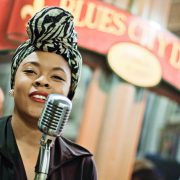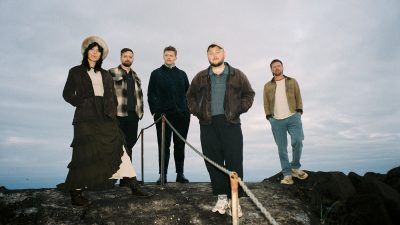Indie finds a new home at Indie88

A dream years in the making finally came to fruition with the 2013 launch of Indie88, a Toronto-based radio station dedicated to the celebration and promotion of independent music. Broadcasting across the Greater Toronto Area and online, the station consists of a team of enthusiastic Canadian and international music supporters with one goal in mind: to put indie music, artists, and fans first. Highlighting opportunities on their homepage to become a “superfriend” and discover “up and comers,” it’s clear that this station is for those yearning to get a little closer to the music.
With a steadily growing audience, listeners can regularly contribute song requests in a collaborative media platform that empowers by integration. The station has and will continue to present concerts that feature some of the indie world’s hottest talent, including the likes of July Talk and Stars.
Quip was thrilled to spend some time chatting to Indie 88’s Program Director, Adam Thompson, about the station’s launch, reception, and impact on the indie arts and business culture in Toronto. Here’s what he had to say:
Laura Eley: How have the first few months been going for Indie 88?
Adam Thompson: Well, it’s been great. We signed on at the tail end of July, so it’s been about five months. We had a pre-existing application into the CRTC for a signal increase and we were granted a larger signal in late November and that allowed us to cover much more of Toronto — the whole city in fact. So that was more of our “official” launch. Now the whole city can hear us.
LE: What was it like to be a part of the station coming to life?
AT: The company is Central Ontario Broadcasting and they filed the application with the CRTC before I came on board. They filed that back in 2011 to create a space for indie music here in Toronto because the CRTC has an application call and any company can put forward a bid for a new radio station. Their idea was to put forward an indie station and the only station in the country to introduce a clause where 60% of the music we play that’s Canadian has to be emerging artists. The CRTC awarded us a license in late 2012 and from there work started on putting the station together and then I came on board in the spring of 2013.
LE: The station is very interactive with its listeners and encourages them to request music and artists. This has the potential to influence what is played on the station. Has that been challenging in terms of program planning or establishing a voice and direction?
AT: No, because we have to make the call of who we’re introducing in terms of if it’s local artists or international artists. We have to take a chance on the bands who are coming through. But then after we add them, it’s hands off and totally determined by the audience.
LE: How important do you think the Internet has been for the rise in indie music?
AT: I think it’s wholly responsible and it’s changed the game for radio stations across the board because 10-15 years ago stations played a very big role in introducing artists to listeners, whereas nowadays Internet listeners are continually introducing music to themselves and radio has to play more of a role in paying attention to what people are hearing and talking about. So it’s completely changed the game because it kind of puts everybody on an equal playing field in terms of bands and artists.
LE: Toronto has a vibrant music scene. Do you think Indie 88 could have been born and raised in another city?
AT: I think it had to start here. Ideally it works in every city but it makes sense to me that it started in Toronto with the richest musical scene in the country. It stands to reason that it would have the best chance of success.
LE: What would you say to someone who says that radio is a dead industry and doesn’t have a place in media?
AT: Traditional forms of media have to evolve, but it’s the healthiest by far of all traditional forms of media. That being said, with dashboards changing in cars, things like radio need to be continually evolving to remain relevant, just like any industry. Technology has changed every single industry.
LE: How much is giving back to Toronto’s independent scene a part of Indie 88’s culture and mission?
AT: It’s a huge part. When we talk about how stations evolved with technology and things like that one of the biggest advantages we have is we’re in Toronto. We’re here, we’re staffed by humans, we talk to people in the city, and we connect with people in the city. So we have to demonstrate that and be a living, breathing thing in the city. And with that comes connections to businesses and charities and people. This is a Toronto station for Torontonians, programming for Torontonians, and supporting Toronto businesses and charitable organizations.













